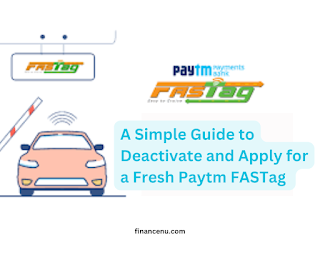A Simple Guide to Deactivate and Apply for a Fresh Paytm FASTag

In today's fast-paced world, Paytm FAS Tag has ended up as a basic tool for consistent toll payments. However, circumstances may arise where you would like to deactivate your existing FAS Tag and apply for a new one. Fear not, as we provide you with a direct step-by-step direct to navigate this handle. Apply for a Fresh Paytm FASTag Step 1: Log into Your Paytm Account Begin by opening your Paytm app and logging into your account. If you do not have the app, you'll download it from your phone's app store. Step 2: Explore to FAS Tag Section Once logged in, find the "FAS Tag" choice on the app. It's ordinarily found within the "Banking" or " Administrations " area. Step 3: Select "Oversee FAS Tag" Inside the FAS Tag segment, search for the alternative that says "Oversee FAS Tag" or something comparable. Tap on it to get to the subtle elements of your existing FAS Tag. Step 4: Deactivate Your FAS Tag Find the cho...


.png)


%20(2).png)

